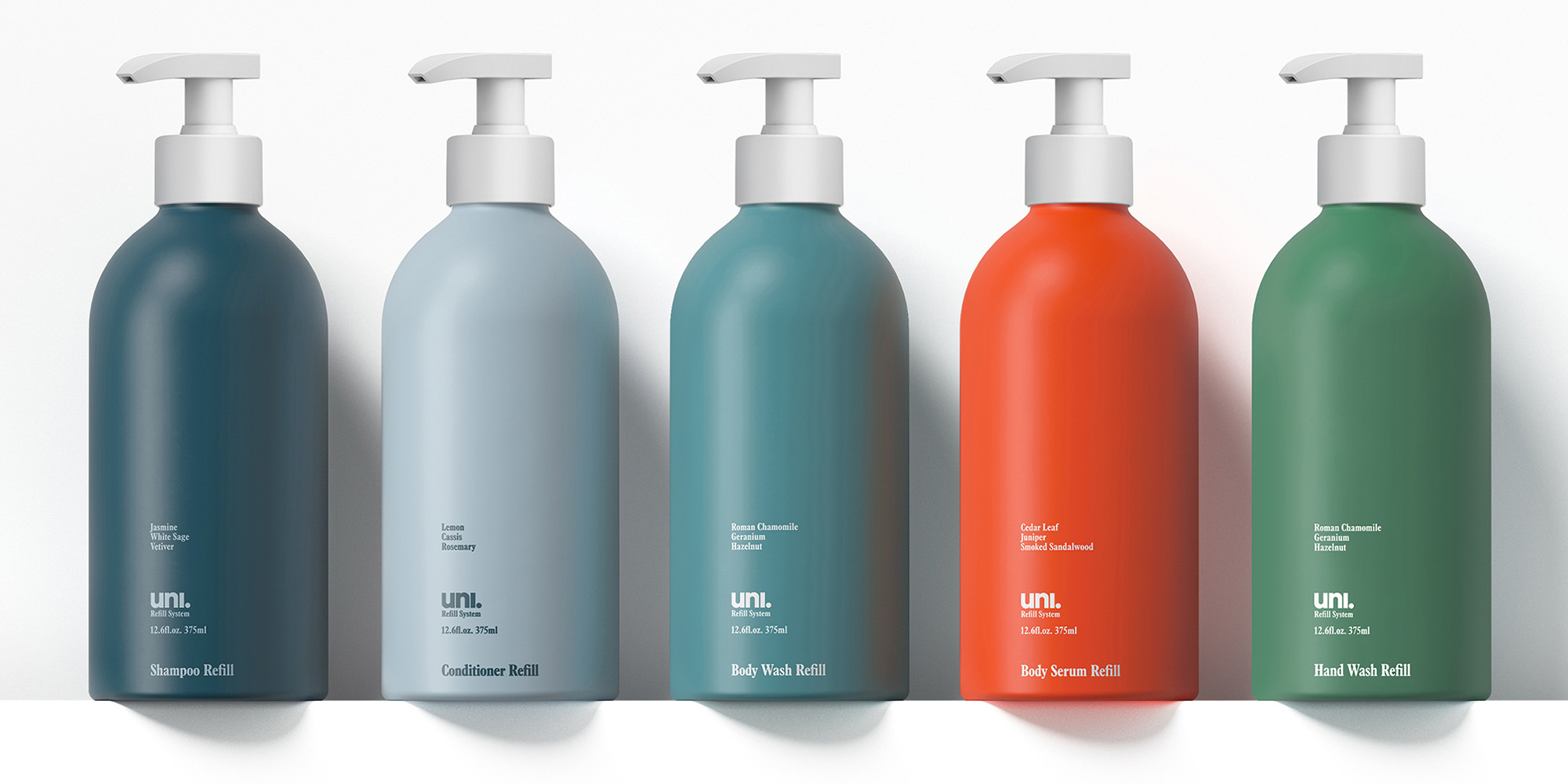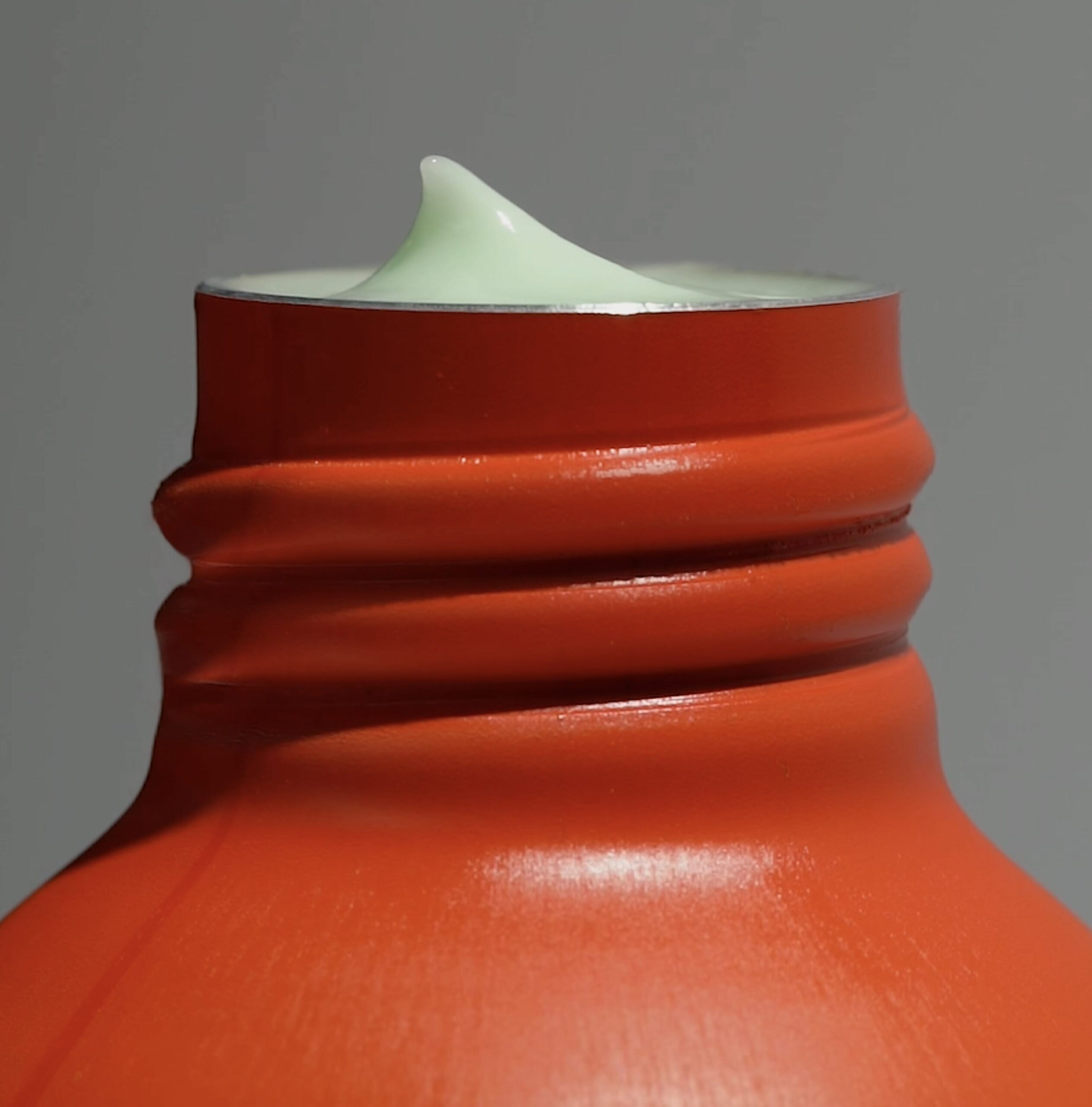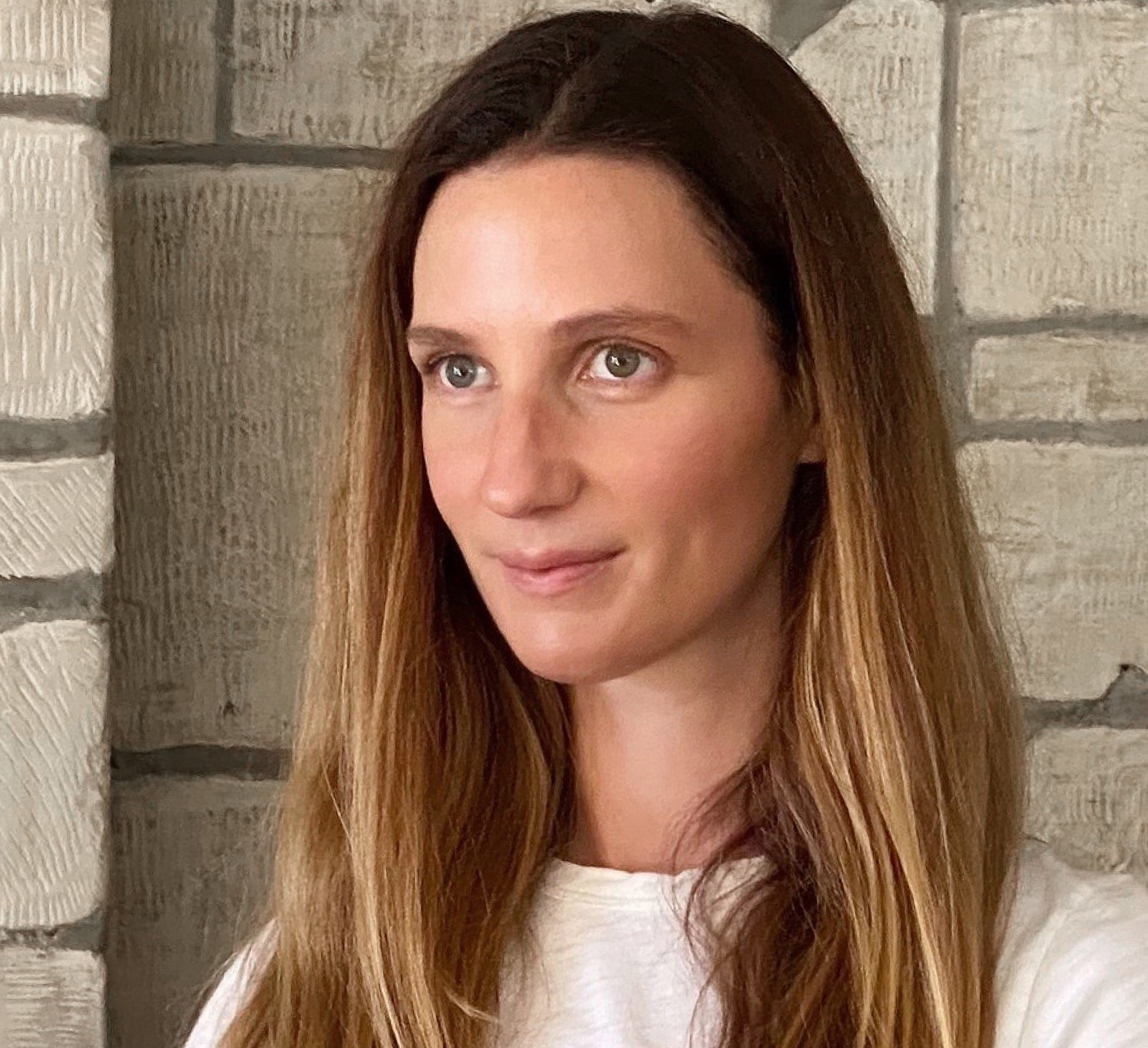
Refillable Body Care Brand Uni Launches At Credo To Reinforce Its Commitment To Blue Beauty, Unveils New Packaging
Alexandra Keating’s journey to creating refillable body care brand Uni began at sea. Specifically, it began during a 2020 excursion to the Great Barrier Reef in Australia, her home country, where she was shocked by the extent of coral bleaching—and wanted to do something about it.
Keating, 35, the daughter of former Australian prime minister Paul Keating whose entrepreneurial endeavors date back to when she was 20 years old and started charity fundraising platform GoFundraise, decided to do what she knows best by erecting a business to address the climate change-driven problem. Uni contributes 1% of its sales to coral restoration, avoids pollutants on the so-called HEL list of ingredients posing possible threats to people and the environment, incorporates upcycled compounds, tracks its carbon footprint from the source of its ingredients to their application on customers’ skin, and maintains carbon neutrality.
Now, it’s reinforcing its support of blue beauty, a movement established by Jeannie Jarnot, founder of retailer and subscription box concept Beauty Heroes, that Keating defines as “not having a brand impact the oceans,” by entering Credo. The clean beauty retailer will carry Uni’s Hydrating Shampoo, Hydrating Conditioner, Skin Shield Body Wash, Restoring Hand Wash and bestseller 24 Hour Serum. The brand’s retail prices run primarily from $31 to $43, and skincare is on its product development docket for assortment expansion.

“We really want to be the leader in blue beauty, and that’s how we think about everything. It’s how we think about the efficacy of our products, it’s how we think about the sourcing, it’s how we think about the impact of the products themselves as well as our brand. That’s our governing structure and our North Star, and why I really wanted to be in Credo,” says Keating. “I really love launching with Credo because I think that they understand that this is the new frontier, and they’re also really great at launching brands.”
In a statement, Credo co-founder and COO Annie Jackson says, “Credo is highly selective on the brands we carry, and all brands must comply with our rigorous standards. Uni does a beautiful job of offering high-performing, efficacious body products, all within a refillable, aluminum packaging system. We are excited for the Credo customer to experience Uni and the brand’s proprietary skin-nourishing formulas.”
At Credo, Uni will be presenting new packaging. The brand kicked off in 2022 with a dispenser designed by Marc Atlan, the creative director known for his work for Comme des Garçons, Helmut Lang, Tom Ford, Yves Saint Laurent, Prada, Marc Jacobs and Maison Martin Margiela, that enveloped its refillable aluminum bottles. At retail, the brand is moving away from the large dispenser to comparably minimal pumps that sit atop its bottles. Once their aluminum bottles are empty, Uni customers retain the reusable pumps to place on their next refill bottle.
“The dispenser will still be there for consumers who want that. I think that what I really want to do is build more keepsakes, so people choose what it is that they want, and they can refill it,” says Keating. “We’re going to continue down that packaging innovation [path], and then eventually maybe some retailers will want something exclusively, but right now everyone is the same.”
“We really want to be the leader in blue beauty.”
Credo isn’t Uni’s first retailer. Preceding it, the brand broke into Erewhon and Goop. Keating explains the brand has been leaning into retail partnerships in Los Angeles, where it’s based and has a strong clientele. Diving deeper into Uni’s customers, she describes them as educated people inclined to scrutinize product formulation and packaging. They tend to be from key cities such as LA, Miami and New York. Hawaii is a robust market for Uni, too. About 35% of the brand’s customers are male.
Today, direct-to-consumer distribution accounts for roughly 90% of Uni’s sales. Keating says the brand’s sales have “grown exponentially year on year.” In the long term, she views Uni’s sales as being fueled predominantly by retail and its presence at hotels and restaurants. The hospitality component of its distribution is expected to come to fruition in 2024.
“What I’m trying to do is spend time with like-minded brands where I feel like our consumers are and figuring out ways to activate around them. For instance, they’re in these popular coffee shops in Los Angeles and maybe we should activate there,” says Keating. “It’s more about thinking differently in terms of how Uni should show up in the world, but obviously not in the way that Aesop did where they had built so many stores. I think that there’s a more effective way of building your own activations for foot traffic without having to build the stores yourself.”
Retailers and brands have been trying to figure out how to motivate beauty consumers to adopt refills. Uni believes it’s pushing the needle toward consumers’ embrace of refills by educating them on refills throughout its various touch points, and Keating says 43% of its customers purchase a refill within 60 days of their initial purchase. She acknowledges, though, greater efforts in tandem with retailers could help increase refill adoption.

“We hope, as we grow, we show that we can shift more units on a per SKU basis and that hopefully they’ll engage with us on a refill program. It is very much our goal, and we are actively pitching the retailers to take back the bottles. It works within their existing loyalty program,” says Keating. “Erewhon already has a give-back program that they do with their juices and soups, and so we’re encouraging them to trial a give-back program for Uni so we can roll it out into all the stores, and we would love to do the same thing with Credo.”
As it peers ahead, Uni is the process of fundraising. It’s already raised $4 million in seed funding at a $25 million valuation. Investors include Milk Makeup co-founder Mazdack Rassi, and Ashton Kutcher and Guy Oseary’s Sound Ventures. Rassi says, “Uni is admired by many in the industry due to their commitment to clean, sustainable beauty coupled with their innovative and eco-friendly practices. Their dedication to ensuring that sustainability is weaved into every part of the way their business operates is why I am certain they will continue to be industry leaders.”
Along with Uni’s sustainability focus, Keating underscores its diverse distribution strategy is a compelling investment proposition. “It’s an investors’ market at the moment. They look for traditionally retail based businesses or direct based businesses. The interesting thing about us is we’re across three different categories,” she says. “The reason that Uni probably is more successful in that area of the business is because we have six-year contracts on our B2B partners, so we have guaranteed revenue where other businesses don’t.”





Leave a Reply
You must be logged in to post a comment.